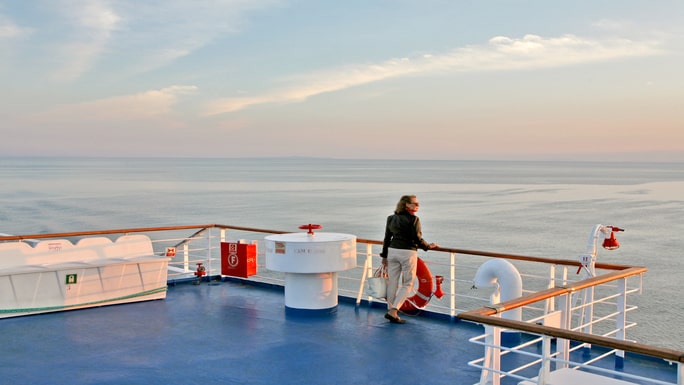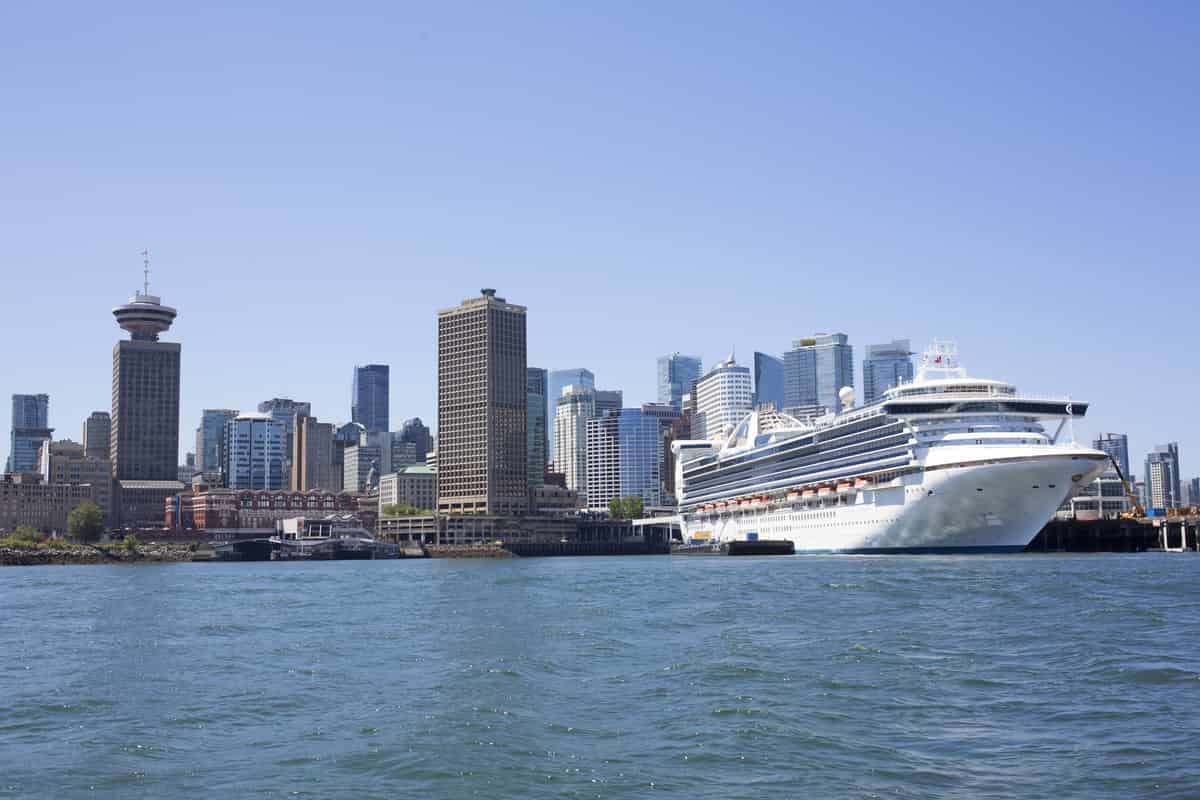Seeking a career that blends management, entertainment, and tourism at sea? Want to create unforgettable experiences for holiday-goers? Working as a member of cruise staff management can be rewarding, providing an exciting hospitality career in a distinctive and fast-paced environment. In this guide, we’ll look at what the role of cruise director entails and the steps you can take to climb aboard and set sail.
What is a cruise director?
A cruise director plays an integral role in creating an engaging and memorable cruise experience. Like a talented event planner, they seamlessly manage the behind-the-scenes logistics and how the cruise is presented.
Their responsibilities include organizing activities, social events, and announcements while coordinating with various department heads to ensure smooth operations on the cruise ship.
Being a cruise director is more than just hosting special events and cocktail parties on board. It involves delivering unforgettable cruise moments through a combination of charm and organizational skills. If you’re interested in a diverse role in hospitality, continue reading to discover how you can pursue this career.
What do cruise directors do?
A cruise director is the ultimate host on the high seas and their main responsibilities span three areas:
- Coordination and supervision: overseeing shipboard entertainment and operations, from daytime games and evening performances to staff rotas and supervising teams for successful event execution
- Communication: acting as an information hub for passengers, sharing schedules, dress codes, and excursion tips. Keeping everyone informed about ship operations and changes means that communication is vital.
- Customer service: handling passenger issues and gathering feedback to improve onboard hospitality
Why become a cruise director?
Being a cruise director offers a unique blend of adventure and entertainment, making it an appealing career choice. This profession allows individuals to explore the world while getting paid, visiting exotic destinations, and immersing themselves in diverse cultures. It’s a role that fosters personal and professional growth, with many cruise directors starting as performers before advancing within the industry. The compensation packages, including accommodation and travel benefits, make it financially rewarding. Moreover, the dynamic work environment, camaraderie among the crew, and joy of seeing passengers’ smiles make it a fulfilling and exciting career path for those with a passion for travel and entertainment.
How to become a cruise director
Reaching any kind of role involving hospitality leadership does require dedication and perseverance. Let’s break down the steps in this journey.
Obtain a degree
Firstly, obtaining an undergraduate hospitality degree is beneficial, although not explicitly required by many cruise companies. Having degrees related to hospitality, event management or business can substantially boost your employability and it can help you get the skills you need. Finding a degree course with a fruitful internship experience can also help you become familiar with the industry.
Our courses are led by industry leaders, combining work placements and professional networking opportunities that will steer your career to exceptional places.

Gain experience
Start acquiring meaningful experience with entry-level positions such as being part of the entertainment staff on cruises. Over time, gradually work your way up through roles that offer more responsibility, such as managing smaller events onboard. This path allows you to learn about creating great passenger experiences and provides useful insights into ship life.
Update your resumé
As you make strides in your professional journey toward becoming a cruise director, your achievements must be documented in your resumé. An updated resumé showcases growth and learning agility.
Apply for jobs
With a powerful combination of education, hands-on experience and an outstanding resumé at your disposal, the next natural step forward is applying for jobs. Look out for open job postings on cruise line websites such as Carnival or Royal Caribbean or even employment portals specific to the hospitality industry. Be proactive and persistent.
Build your network
The power of networking cannot be overstated when planning to advance in any profession, including cruise directing careers. Attend industry events and interact with cruise staff as their insights could be incredibly useful. Join online communities and participate in them, discussing roles such as entertainment director jobs or subjects related to how to become a cruise director.
Continue learning
Never stop soaking up knowledge and be open to learning as this attitude will help hone new skills while keeping existing competencies sharp. This is key in the high-energy environment on a ship.
Skills needed to become a cruise director

Certain skills are fundamental to excel as a cruise director. Besides academic qualifications and experience, you will also need soft skills, which will be helpful in any role.
Organizational
Being a cruise director involves coordinating various activities such as supervising entertainment programs, managing staff, and overseeing guest satisfaction, so organization is key. You should be able to schedule tasks efficiently and ensure smooth operations onboard. A cruise director who lacks organizational skills risks disrupting schedules and offerings, possibly leading to negative passenger experiences.
Communication
Communication is one of the most important interpersonal skills. You’ll be interacting with guests from diverse backgrounds daily and substantial teams comprising performers, recreation staff, and customer service representatives. It’s vital to develop excellent verbal, non-verbal, and cross-cultural communication skills. Your ability to articulate ideas clearly and persuasively will ensure your team executes plans as envisioned and enable you to address guests’ queries efficiently. It can also be beneficial to speak one or more foreign languages.
Customer service
Your primary goal is every passenger’s satisfaction on the voyage or, put simply, customer service excellence. Here is where empathy comes in handy for understanding passenger needs or issues from their perspective and then formulating suitable responses or solutions. Additionally, creating a strong sense of teamwork among your crew contributes to better guest experiences.
Ability to remain calm
Regardless of meticulous planning and organization, unforeseen situations may arise aboard a ship. A cruise director must remain calm under pressure. Effective problem-solving skills coupled with poise help reassure passengers while solutions are implemented.
Entry level cruise director jobs
To become a cruise director, you will probably have to start in lower-level roles that will help you get a feel for what it’s like to work on a cruise ship. Among the more common entry-level roles for cruise directors are:
- Assistant Cruise Director: collaborate closely with the cruise director to plan and execute onboard programs
- Activity Staff Member: organize and lead leisure events for guests as part of the recreation team
- Entertainment Coordinator: create exciting live performances for passengers and be at the heart of onboard excitement
These roles look great on your resumé and provide insights into customer expectations and overall operations management. Practical experience is always valuable to increase technical expertise, cultural adaptability and other vital skills needed for cruise management.
Best majors for cruise directors
The journey towards becoming a cruise director often begins with the right academic degree. Certain majors provide a strong foundation for this unique role and below are some solid choices to consider:
- Hospitality management: covers guest relations, event planning, and business administration, which are all vital for aspiring cruise directors
- Tourism and travel services: focuses on tour planning, travel consulting, tourism marketing, and geography relevant to the cruise environment
- Business administration or management: essential for team management, budgeting, and contract negotiation, which are essential tasks for cruise directors
- Mass communication/Media studies: develops effective communication and public speaking skills that can be applied to a range of roles
It’s an excellent idea to complement studies with cruising sector internships to gain practical experience. Enthusiasm and passion for delivering exceptional guest experiences is fundamental to being a cruise director and the right degree will help you harness this enthusiasm and develop the skills you need. If you’re still undecided, read more about how to decide on a career path or why study hospitality and tourism.
A great career-boosting option, our online degree is designed so you can gain first-class hospitality skills and many other benefits as you continue in your current role.

Conclusion
The role of cruise director requires a unique combination of skills and qualifications. Suggested steps to becoming a cruise director include obtaining a degree relevant to hospitality or management, gaining initial experience preferably in jobs aligned with customer service and event planning, crafting a compelling resumé, actively applying for cruise director jobs and constantly expanding your professional network.
Pursuing a career as a cruise director can offer thrilling experiences and handsome perks for those with skills, resilience, and passion. It presents you with opportunities to travel the globe and deliver experiences customers will never forget. If you want to get started on your path to being a director on a cruise ship, consider studying at a renowned hospitality school such as Les Roches today.
Main Image:
Grant Faint/ The Image Bank Via Getty Images




